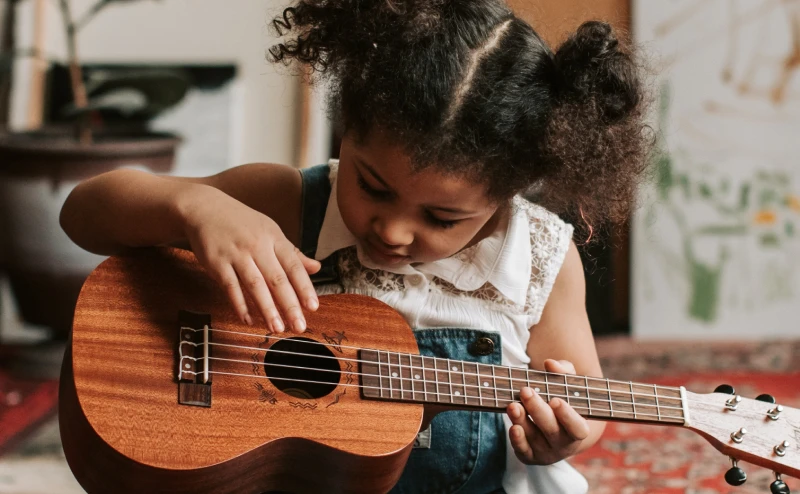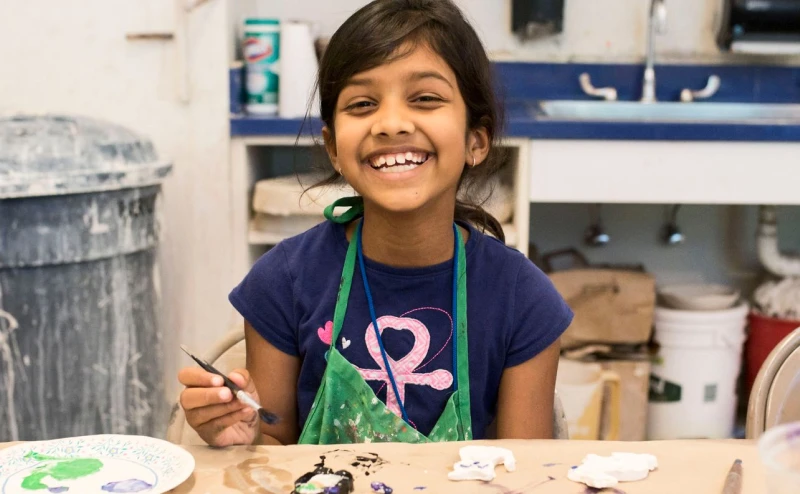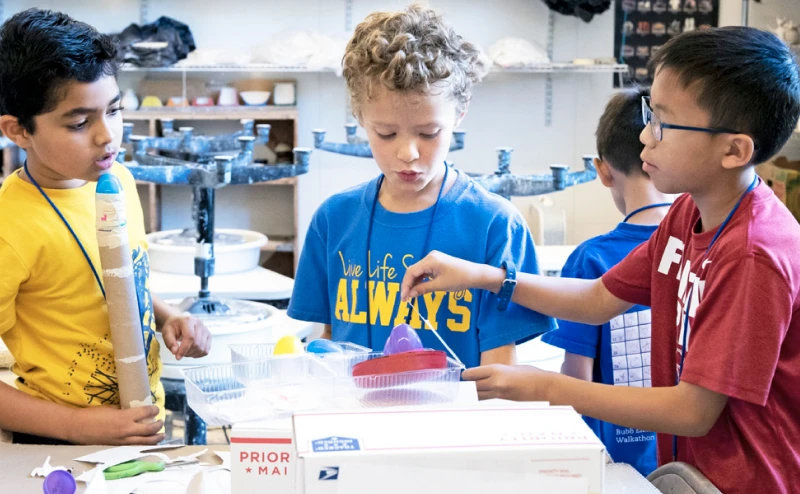CSMA presents a free film screening of Cambur Pintón on Saturday, May 22 at 7:30pm live streaming on YouTube. The screening will also include a live musical performance and a conversation about the filmmaking process and Venezuelan culture with Rennea Couttenye, the film’s co-producer and San Francisco-based musician.
Cambur Pintón is a film about the power of music, documenting the musical grooves of Venezuelan’s daily life. It shows, with no narration but superb imagery and sound, the journey of how a traditional instrument is made, how its rhythm can move people and how these stories from modest roots can share glimmers of hope amidst struggle around the world.
We asked Rennea Couttenye a few questions to learn more about her background, the inspiration for the film and what the audience can expect from her performance. She answered us in a video.
INTERVIEW FOR COMMUNITY SCHOOL OF MUSIC AND ARTS FROM RENNEA COUTTENYE ON VIMEO.
The following has been transcribed from Rennea’s video response.
Tell us a little about yourself. How did you begin playing and performing music?
I came to San Francisco when I was 20 years old. I am originally from Venezuela and try to go back often. I started playing music when I was born. My mom says that when I was little I loved to sing. She would sing to me as a baby and I would repeat the songs back to her. One particular song my mom would sing was Di Papá. “Di papa, donde esta, el buen dios?” and my mom was impressed when I kind of repeated her “Di papa, donde esta…” My family was very musical so there was always music around us. If I didn’t know what to sing or what to play I would just pretend I was playing music.
Did you have access to music education in school?
I did not have a formal musical education. I did not study music solfege and things like that, but I did have singing classes where I learned lots of Venezuelan songs and folklore. My school put on lots of plays with the traditional festivities, so we would dress up, sing and play. This is the kind of music I had access to when I was younger.
When I was around eight years old my mom and dad put me in piano lessons, but I had a really hard time learning the solfege and learning to read the notes because it was too abstract for me. I have a pretty good ear, so I learned everything by heart. My piano teacher would come and I would learn the song and the next thing I knew I was playing it, but everything was by ear. My teacher insisted I learn to read and not invent things, but I pretty much stuck to learning things by ear.
Tell us about a great music teacher you had.
I don’t even remember my piano teacher. I know that she was there for me and I enjoyed the music very much, but I don’t remember the particular music teacher. I have mostly been self-taught.
When I was around 13, my uncle showed me three guitar chords and it was from there that I came up with everything that I needed to know to sing basic songs, but again I did everything by ear. So I’m going to say, my favorite music teacher is my ear.
How often do you practice and/or rehearse?
I sing every day. When I have a show or a particular project I need to do I spend hours and hours figuring out the chords, my phrasing, if I want to do a song more of my own or how the song is traditionally performed. Closer to any kind of presentation I get really into it and I play my guitar and accompany myself. In general, I will have other people playing for me, so we get together and rehearse. As we get close to a show, we rehearse pretty much every day but in between performances I just try to use my voice every day. I know it’s a muscle and it needs to be used all the time.
What advice do you have for aspiring musicians?
I am going to say “let it be.” There are two approaches to music. One is more academic learning, thinking, reading and practicing the music, the other is more improvisational. I had a really hard time doing the reading and writing, so my approach is very improvisational. Someone can play any kind of music and I will come up with a song.
My advice to myself is to learn more of the reading and writing of the chords because I need more of that influence to make myself better. I know that for the people that are very attached to what is written on the paper, it’s better to approach it from the other way—try to improvise, do something without the paper, go for it. So the advice is different for each musician depending on where they are. For me, it is studying and getting closer to the page and for others, it is to get away from the page. Don’t look at it and do your own thing.
What inspired you to produce Cambur Pintón? Did you have previous film experience?
This is the perfect question. I love music, I play music and since I have been away from my birth home, Venezuela, I have felt the need to bring the music of Venezuela to the forefront for people to see and hear. It wasn’t until after I came to the United States that I got in touch with my own cultural background. I am at a point where I can give back and want to connect more with my home country. Now that my kids are grown I have more time and space to do what I really want and that is to connect closer to my roots.
During a conversation with my husband Maurizio, I told him I really want to do something helpful that connects me to Venezuela and he said “Why don’t we make a movie?” I just thought oh my god, I’ve never made a movie, but he has so I thought that was great and of course, what immediately came to my mind was music. Let’s do something about the music of Venezuela because it is not really known.
Venezuela is known to be very musical and we have amazing programs in which kids learn musical studies very young and we have a lot of youth orchestras all in the classical realm, although they also use their natural ear to meld with the formal instruction. There is a lot of music and that is very well known outside of Venezuela, but the folklore, the traditional folk music that is played in the little towns, churches, processions or any activity that is done in the rural villages have music attached to it.
That music is wonderful, beautiful, completely unique and different, so I want to show that in the context in which it is played. Not on a stage in a theater, where you are missing out on the flavor, weather, where the people sit, how they perform, how they gather. I wanted to show that, so we needed to go to Venezuela. We needed to go to all those little areas which are very different—the east, west, south and center. Towns in the same geographical location will each have their own flavor, from their own people, from their own town that is different from the others and they can totally tell the difference. The people will recognize this drumming is from here or this drumming is from there because the patterns are different. That nuance is really hard to tell by anyone from the outside including me. I cannot tell the difference, but I am learning and this is something I hope to explore more and to share with people.
With Cambur Pintón we have started doing that. We went to a place and started there. The other part that we want to show is the younger musicians with formalized training, comparing what they hear and what they study, and how it has influenced the music and how the musicians are inspired by Venezuelan music to do their own thing. Now they are out in the world doing amazing things. I want to show that. So it is like the traditional, the super latest and greatest and how it is all linked by the Venezuelan culture, folklore, geography and lifestyle.
Anything else you would like to share with us?
This a project of giving and one of the ways I express it is by giving hope. When things are hard, our music really unites us and for some years now things have been difficult in Venezuela in terms of the economy, health and human rights, but there is one thing we always advance and that is music.
Music keeps people together. Music keeps the spirit of people alive. Music brings hope. Sometimes there are very dire situations, but then people get together and play. It uplifts spirits and creates community. You are really locked in with each other when you play music together. Playing music is probably one of the most gratifying expressions that people can have so when someone says “I’m tone-deaf,” I say there is no such thing. Everybody can play. Everybody can have a rhythm. Everybody can move to something that is musical in themselves. It is a matter of really listening close and really paying attention. Everyone has an opportunity.
In Venezuela music is pretty much part of everyone’s everyday life and there is a lot of rhythm in the way we talk, the way we move, the way we do things. Music is a symbol of hope, uplifting spirits and even during this pandemic there has been so much out there. Sharing with people is great.
I don’t think many people know about Venezuelan music so we are going to have a little talk about how music is part of our life, we are going to have a film that shows what we have been doing at the beginning of our work and we are going to have me performing some music of different areas together with Abi Ramirez Romero who is a Venezuelan piano player and teacher at San Jose State University. I am so happy to have him with me and we will do something special for that day. I hope we can set up an interactive experience so we answer any questions you have.
Watch Rennea Couttenye’s screening on our YouTube channel.



